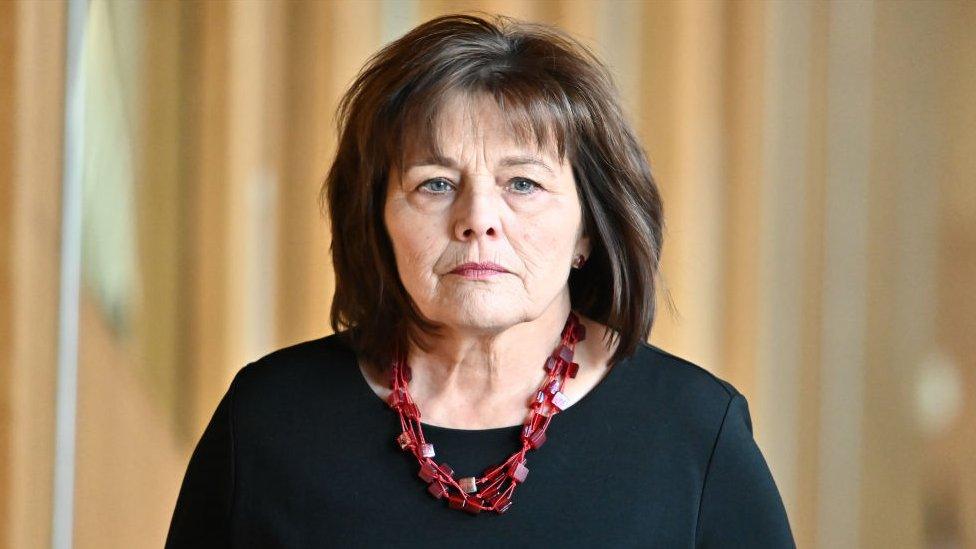Baby's death caused by infection 'unrelated' to hospital building
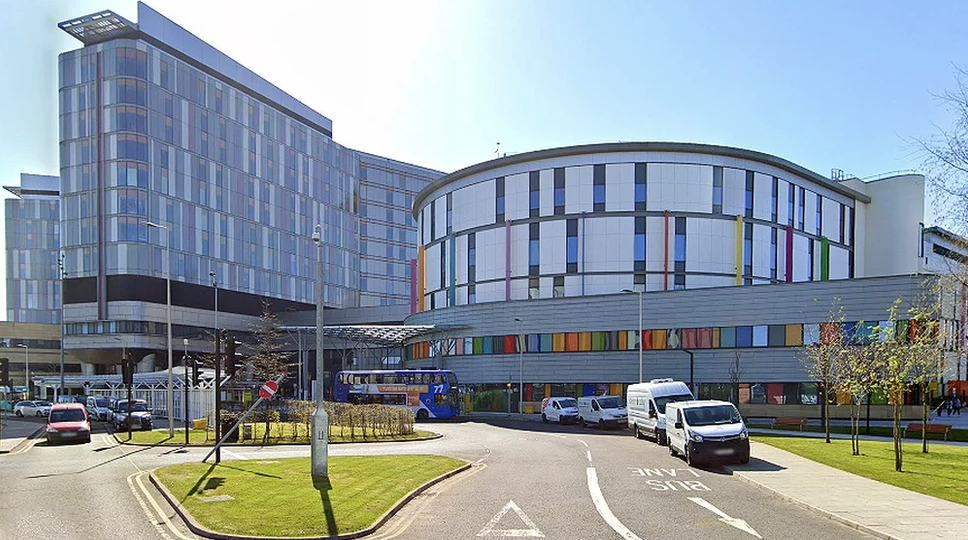
Sophia Smith died at the Royal Hospital for Children after contracting a rare bloodstream infection
- Published
The death of a baby at Glasgow's Royal Hospital for Children was partly caused by a bacterial infection not related to the hospital building, a fatal accident inquiry has found.
Sophia Smith was 12 days old when she died after contracting a rare bloodstream infection - which developed into sepsis - in April 2017.
Her parents, Theresa and Matthew, previously said they felt the infection was caused by the "putrid hospital".
However, Sheriff Joanna McDonald found Sophia's death could not reasonably have been prevented, external, and was "not related to the built hospital environment".
NHS Greater Glasgow and Clyde said it would implement the FAI's recommendation regarding reviewing screening protocols, and consider other observations made in the report.
Sophia, who had Down's syndrome, was born on 31 March 2017 at the Royal Alexandra Hospital in Paisley.
She had breathing issues and it was decided to move her to the Royal Children's Hospital, on the campus of the Queen Elizabeth University Hospital (QEUH) in Glasgow.
On admission, Matthew and Theresa were told there was an issue with her heart. It was then discovered she had a collapsed lung.
Sophia then became infected with PVL-MSSA, a rare and aggressive strain of the bacteria staphylococcus aureus, which can be transferred from skin to skin.
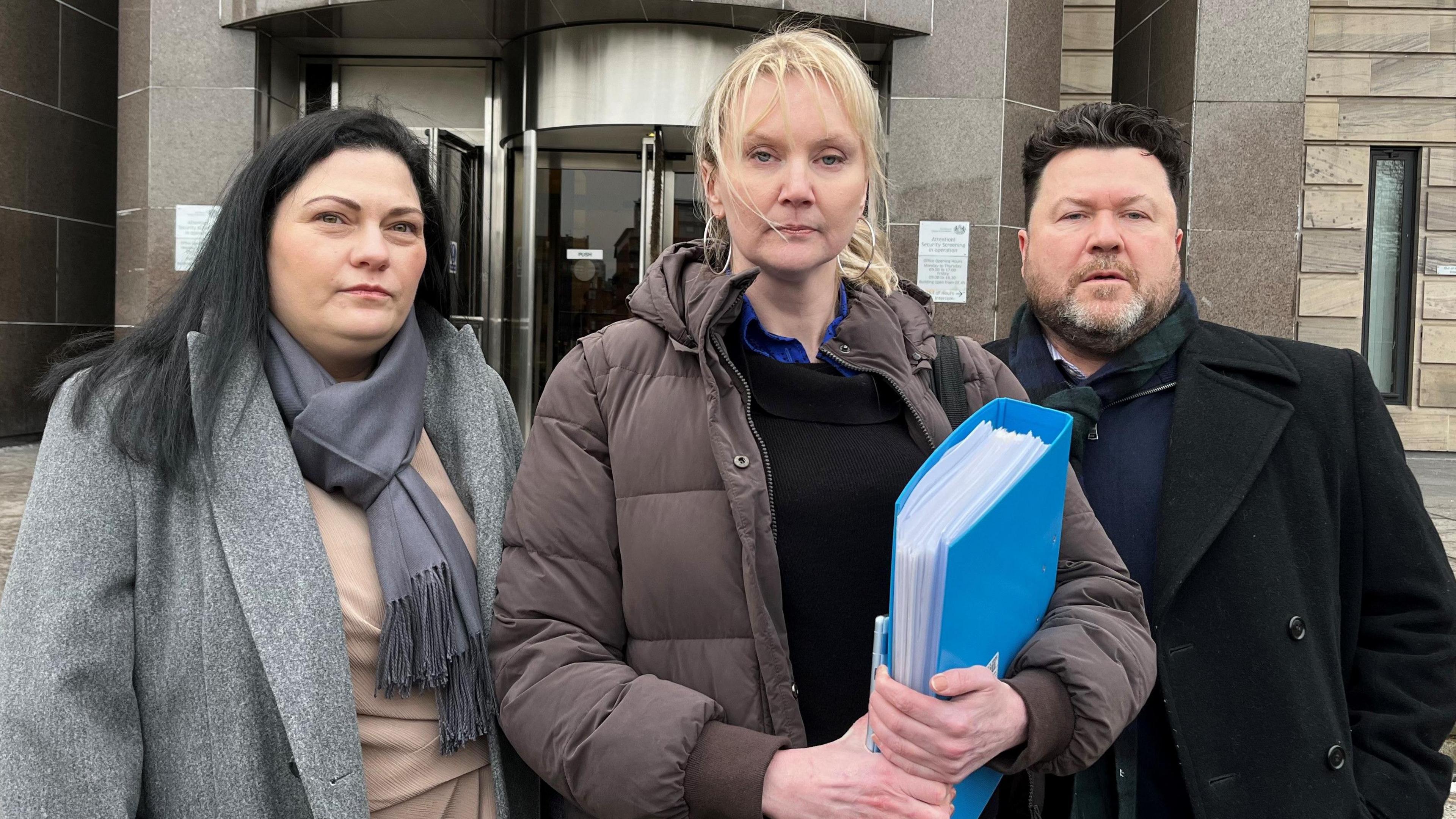
Sophia Smith's parents Theresa, left, and Matthew with their lawyer outside court
Sophia's parents had raised concerns regarding whether their daughter's death was connected to the hospital itself.
But Sheriff McDonald referred to findings in the separate Scottish Hospitals Inquiry, which found no evidence Sophia's infection was associated with any of the other infections being investigated at the QEUH.
She wrote that Sophia was also never nursed within the new buildings, where a 2021 review found over 80 children had been infected with rare bacteria while undergoing treatment there.
Sheriff McDonald wrote that Sophia's case being an isolated incident further supported this conclusion.
So too did the fact that there were no similar cases - or an outbreak of the bacteria in the unit - in the six months before and after her death.
'Increased risk infection'
The FAI concluded Sophia was "an increased risk infection due to a number of factors", including her age, her medical condition, the length of time that she had spent in the Neonatal Intensive Care Unit (NICU) and the necessary use of invasive devices.
It ruled the infection had most likely come through a PICC line - a catheter - that was used on Sophia.
But there was no way of knowing if it occurred when the catheter was first used, or at a later point in her treatment.
Sophia's parents had also questioned the fact a bank nurse cared for their daughter one day.
The FAI acknowledged the nurse was likely less experienced than staff but found there was no evidence that the care on that day had contributed to the infection.
Separately, it heard the girl should have been swabbed by 10 April but this was not done, with no reason given as to why this was missed.
However Sheriff McDonald found that while weekly screening swabs would have been a reasonable precaution, it would not realistically have prevented Sophia's death.
She said NHS Greater Glasgow & Clyde should review existing protocols regarding screening.
Hospital hygiene
Other issues raised included hygiene in the hospital, which was determined to be of a high standard.
But it recommended the common use of mobile phones on wards be avoided in future to limit any risk of bacteria spreading.
The FAI also determined that while communication between Sophia's family and medical staff was generally good, there were moments where it was handled poorly and added to the distress of the family.
These included a doctor telling Sophia's mother that she was "out of the danger of death zone" - which made her daughter's rapid decline and death even more devastating.
The sheriff concluded by saying Sophia's parents had shown "remarkable strength, dignity and resilience."
She added: "To them and each of their family members I offer them my deepest condolences in their loss of their daughter, their sister and their grandchild, Sophia Evangeline Smith."
Dr Scott Davidson, medical director at NHS Greater Glasgow and Clyde, said the health board extended heartfelt condolences to the family.
He said: "Whilst there are no formal findings against the board there is one recommendation which is for NHSGGC to review its existing protocol on the weekly screening of vulnerable neonates in order to ensure that it is properly complied with at all times.
"We fully acknowledge this recommendation and will address this.
"Within the determination there were also a number of observations which do not fall within the scope of a fatal accident inquiry. We will also consider these observations for opportunities to learn and improve."
Police previously carried out an investigation into Sophia's death, alongside other fatalities at Queen Elizabeth University Hospital (QEUH) - including leukaemia patient Milly Main.
In 2020, the case was handed over to the Crown Office and Procurator Fiscal Service but a decision was made not to bring criminal charges.
Related topics
- Published24 September
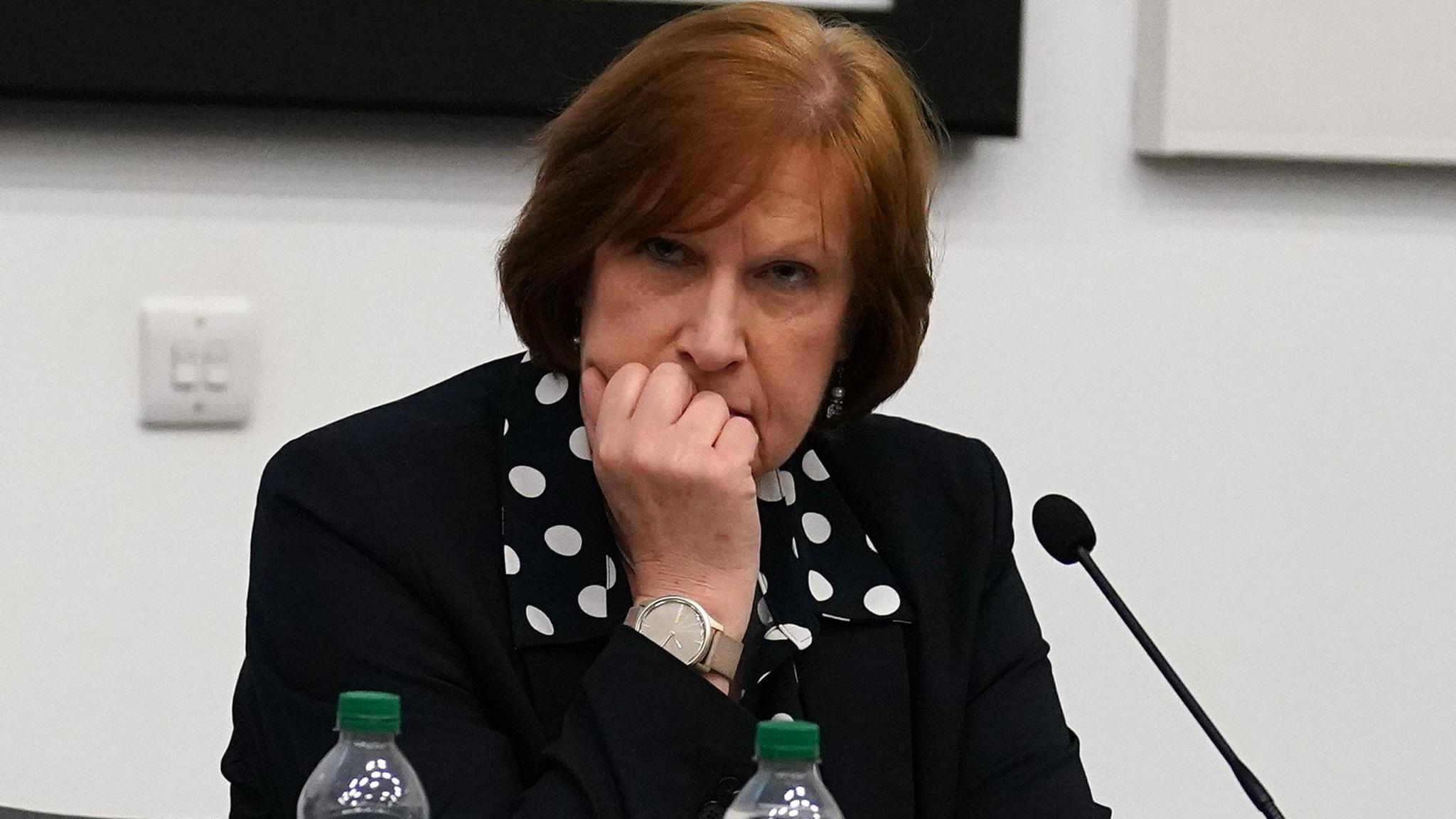
- Published19 August
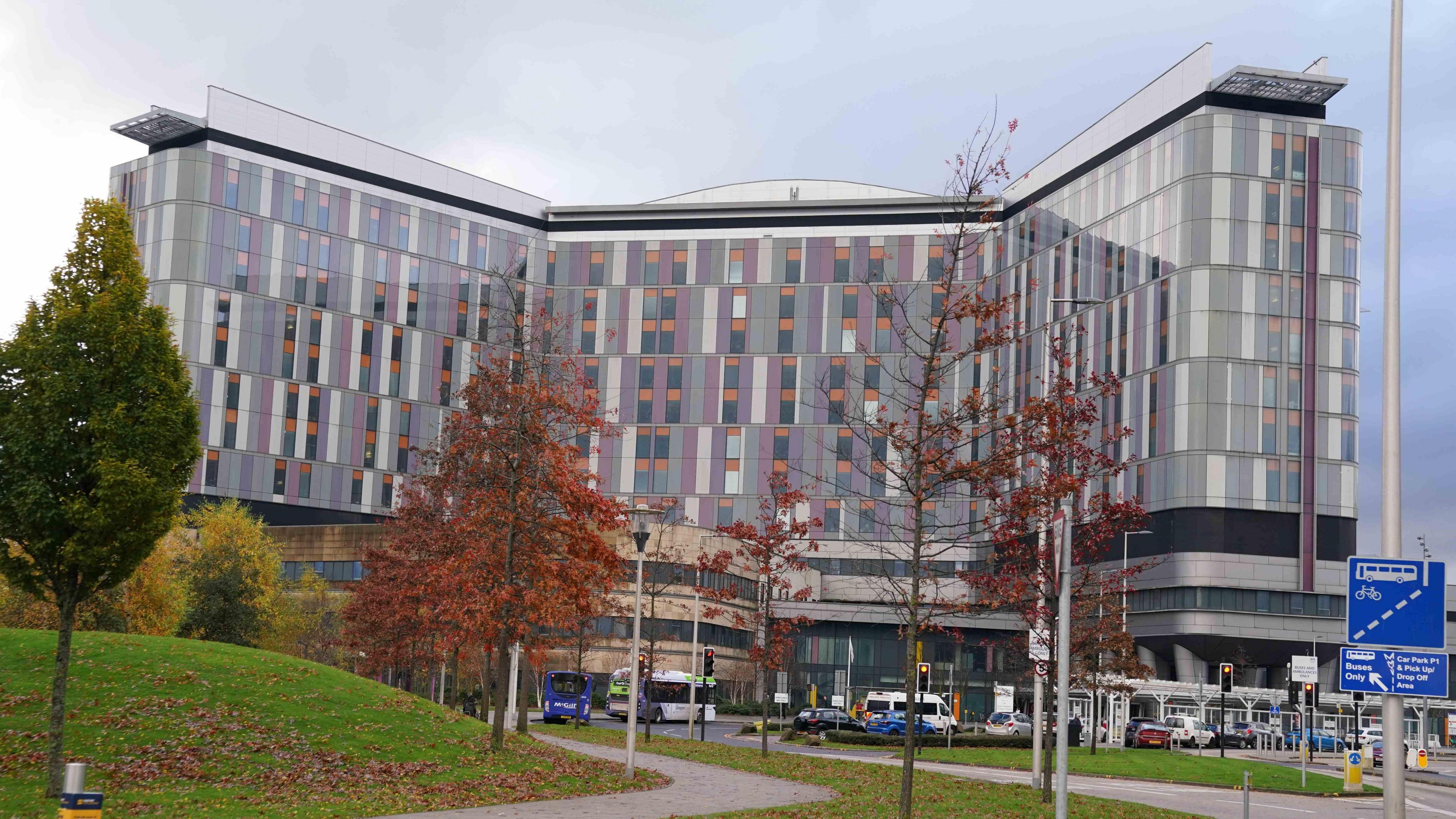
- Published12 March 2024
